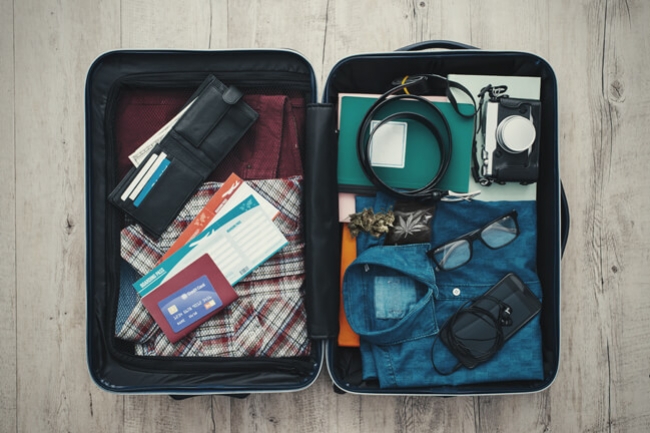.

Can CBD Be Used To Treat Jet Lag?
Jet lag can cause sleep issues, muscle aches, digestive problems, and cognitive fuzziness. For many, this ailment is the worst part of travelling. Could research into CBD highlight a solution to this all-too-common malady?
As one of the main chemical constituents in cannabis, ongoing scientific studies have proposed CBD as a versatile cannabinoid. In the realm of jet lag, does research indicate CBD has any potential for easing this common traveller’s malady?
WHAT IS JET LAG?
Jet lag is the set of symptoms which occur when you travel across time zones and your body’s circadian rhythm is disrupted. The circadian rhythm is a biological process that allows living creatures to match their internal systems with the day/night cycles of the planet. Animals’ circadian rhythms play key roles in regulating brain waves, core body temperature, hormonal activity, and cellular health. In humans, melatonin and cortisol play key roles in regulating our circadian rhythms.
When you travel across time zones, your body’s wires get crossed. Your circadian rhythm is telling you it’s one time of day, while your senses are telling you it’s another.
Jet lag often causes sleep disturbances and poor quality of sleep. When going from west to east, travellers can experience insomnia, and when going from east to west, travellers might experience early awakening, or trouble remaining asleep. Jet lag can cause impaired cognitive performance, decreased focus, irritability, fatigue, muscle soreness, and headaches. It can also cause gastrointestinal problems, including indigestion, constipation, and lack of appetite. Jet lag can be exacerbated by travel fatigue, which are symptoms unrelated to jet lag caused by travel conditions like cramped limbs, dehydration, loss of sleep, and time spent in a low-oxygen environment.
Many travellers don’t experience jet lag unless travelling over more than three one-hour time zones. However, some travellers report jet lag after moving over a single time zone. One “rule of thumb” is that it takes a day to recover for each one-hour time zone crossed; it’ll take three days to recover from crossing three time zones. However, jet lag affects different individuals differently, so claims like this should be taken with a grain of salt.
Jet lag tends to be more severe when moving from west to east than east to west. As you get older, you may become more susceptible to jet lag.
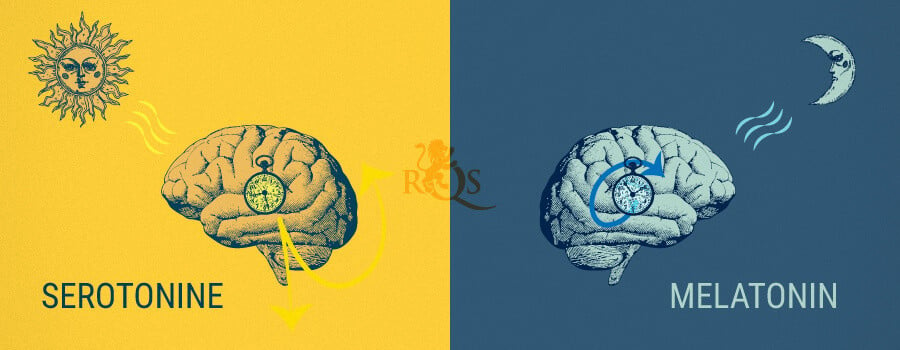
HOW TO PREVENT JET LAG
There are a few steps you can take to prevent and minimise jet lag. Leading up to your flight, try to shift your sleep schedule so it more closely resembles the time zone of your destination. Cut back of caffeine, alcohol, and cigarettes before and during your trip, as these substances are all known to disrupt your circadian rhythm. While travelling, make sure to stay hydrated, eat healthy, and stretch your muscles. Once you arrive at your destination, spend plenty of time outdoors and in the sun to “jolt” your body into the new routine.
USING CBD WHEN YOU HAVE JET LAG
Even if you follow the above tips, you still may experience jet lag, especially if you’re travelling across a large time difference. If this is the case, it may be worth looking at what the studies below suggest about CBD's effect on the symptoms of jet lag.
We’ll go through each experiment, one by one, and see how CBD performed.
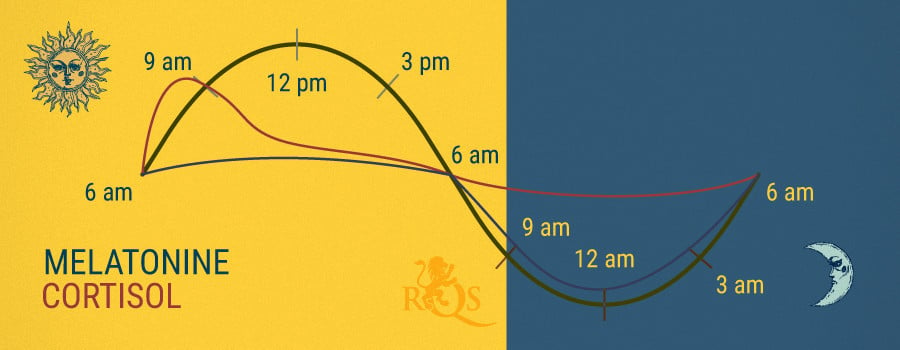
SLEEP DISTURBANCES
Some jet lag sufferers attempt to treat the condition by resorting to sleeping pills like benzodiazepines. These cause a host of side effects like weakness, depression, irritability, and headaches—and are highly addictive. Others might try taking exogenous melatonin to help regulate their sleep cycle. Melatonin can be effective for many people, but it doesn’t work for everyone, and for a minority can be tolerance forming. With these side effects in mind, many people are interested in possible alternatives.
A study[1] published in the Journal of Psychopharmacology found that CBD may have a calming effect—though not sedative—when administered to a rodent model. Strangely enough, CBD helped reduce daytime sleepiness, keeping male rats alert during the day. A second study[2] supported these findings, concluding that "CBD induces alertness".
ANXIETY AND IRRITABILITY
Jet lag can also cause anxiety and irritability as it disrupts the brain’s cortisol levels. In this domain, a 2011 study on CBD[3] and generalised social anxiety disorder used a simulated public speaking test to gauge performance-related anxiety. As part of a double-blind procedure, 24 participants with SAD were given either a 400mg dose of CBD or a placebo. Researchers found that "relative to placebo, CBD was associated with significantly decreased subjective anxiety".
INFLAMMATION AND PAIN
Regarding pain and inflammation, studies on CBD are mostly preclinical. One study, first reported by the Laboratory for Integrative Neuroscience[4], proposes that CBD, “a major nonpsychoactive component of marijuana … significantly suppress[es] chronic inflammatory and neuropathic pain without causing apparent analgesic tolerance in rodents”.
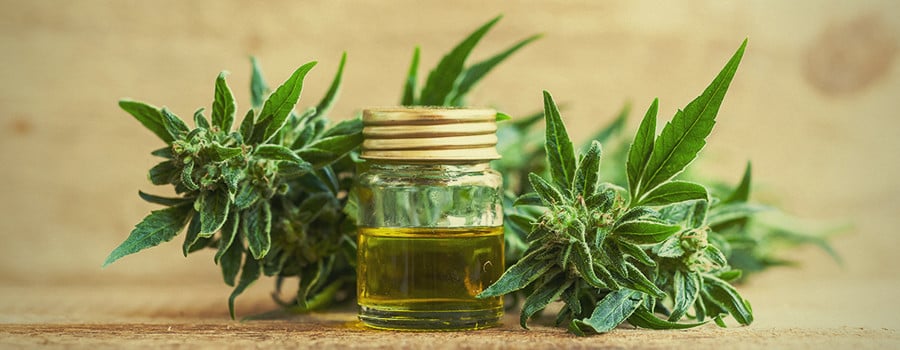
DIGESTION
Further studies examine CBD’s potential in the management of gastrointestinal problems, including ulcerative colitis[5] and inflammatory bowel diseases[6]. This is due in part to the recently discovered presence of CB1 receptors throughout the GI tract, leading researchers to posit the relevance of the endocannabinoid system in digestive system mediation. In the examples listed above, CBD was shown to affect gastrointestinal motility, a term used here to refer to contractions or dysregulation in the gut muscles
COGNITIVE FUNCTIONING
Those who work while travelling might be especially frustrated by the cognitive impairment associated with jet lag. Unfortunately, there’s a lack of research on the short-term effects of CBD for improving cognition, but there are studies to suggest that the compound may reduce oxidative stress. Oxidative stress is known to cause cognitive impairment and may be associated with jet lag[7]. CBD has been shown to affect oxidative stress and reverse associated cognitive deficits in rats. The study[8], which replicated mortality using a rodent model, administered CBD in 2.5, 5, and 10mg doses over a nine-day period.
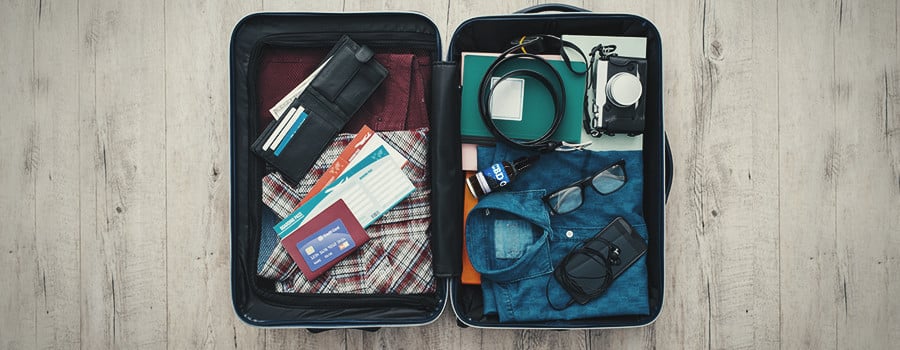
QUESTION OF LEGALITY
The major potential side effect associated with CBD isn’t medical: it’s legal.
If you’re considering using CBD oil, make sure to check if CBD is legal in your destination country. Many transport agencies don't allow CBD. If you show up touting your tincture bottle at the airport, you may be unpleasantly surprised to find your CBD taken away, or to find yourself facing legal charges. Always proceed with caution.
- Effects of acute systemic administration of cannabidiol on sleep-wake cycle in rats. - PubMed - NCBI https://www.ncbi.nlm.nih.gov
- Cannabidiol, a constituent of Cannabis sativa, modulates sleep in rats. - PubMed - NCBI https://www.ncbi.nlm.nih.gov
- Neural basis of anxiolytic effects of cannabidiol (CBD) in generalized social anxiety disorder: a preliminary report. - PubMed - NCBI https://www.ncbi.nlm.nih.gov
- Cannabinoids suppress inflammatory and neuropathic pain by targeting α3 glycine receptors. - PubMed - NCBI https://www.ncbi.nlm.nih.gov
- Cannabidiol reduces intestinal inflammation through the control of neuroimmune axis. - PubMed - NCBI https://www.ncbi.nlm.nih.gov
- Cannabidiol in inflammatory bowel diseases: a brief overview. - PubMed - NCBI https://www.ncbi.nlm.nih.gov
- Experimental 'jet lag' causes sympathoexcitation via oxidative stress through AT1 receptor in the brainstem. - PubMed - NCBI https://www.ncbi.nlm.nih.gov
- Treatment with cannabidiol reverses oxidative stress parameters, cognitive impairment and mortality in rats submitted to sepsis by cecal ligation and puncture - ScienceDirect https://www.sciencedirect.com



























